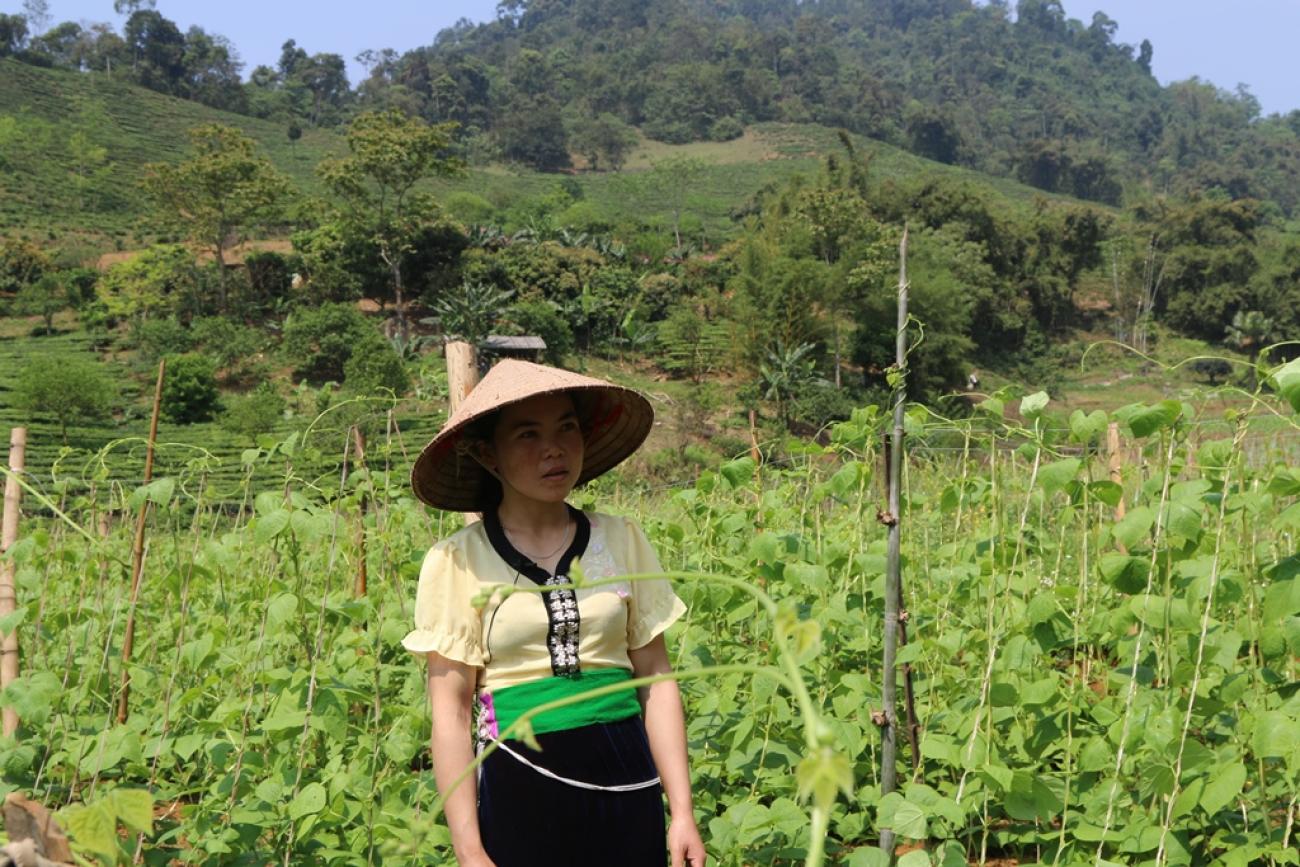The 29-year-old farmer and her family, from a small commune deep in mountainous Son La province – in the northwest of Viet Nam, struggled to get by on meagre returns from their one rice harvest per year.
“It was tough, we had no way to increase our income,” she said.
That was until Hien was introduced to an innovative FAO project to build the capacity of farmers in Son La, one of the country’s poorest provinces, to tap into Viet Nam’s rich potential as a vegetable growing nation.
The project, a joint initiative between FAO and the Vietnamese Government also rolled out in northern Hung Yen and central Lam Dong provinces, designed to increase farmers’ incomes through enhancing their sanitary and phytosanitary (SPS) capacity for vegetable commodities to meet production compliance standards and access local and international markets.
For farmers like Hien, who lacked cultivation techniques and the ability to access equitable markets, it meant first participating in training courses on safe vegetable production and meeting VietGAP (Vietnamese Good Agricultural Practices) certification standards, before joining a cooperative where farmers from respective communes apply newly-learnt techniques to a variety of vegetable crops.
The results were dramatic.
“Before we only had one rice harvest, now things are much better as we have three seasons of vegetables per year,” she said.
As a member of To Mua commune’s Tan Duc vegetable cooperative, where its 27 members grow a range of vegetables on 5 hectares, she first grew cabbages with a first season harvest of 1.5 tons.
“These courses have changed agricultural production [in the commune]. The science and technology training was most useful, now I understand more about cultivation techniques and market access,” she said. The lessons were complemented by field demonstrations applying food safety and quality management approaches along the value chain of six selected vegetable crops, while sets of training materials on GAP, Farm Business and Farmer Field Schools were also produced in the three provinces. Hien’s isolated cooperative, located 20 kilometres from the nearest major road, also received project support to identify and access new local markets for its produce.
This project is important as vegetable production in Viet Nam has grown rapidly in recent years in terms of volume and yield, with farmers attracted by the significantly higher incomes in comparison to other commodities such as rice, tea and maize.
Despite this promise, the sector and farmers’ incomes have yet to reach their full potential as the safety and quality of produce across the value chain is a major concern. Problems include excessive use of pesticides and the lack of awareness and application of good agricultural practices at farm level. Poor post-harvest handling practices have also resulting in product deterioration and loss of quality.
However, the three-year FAO project’s success in helping deliver higher quality products and associated incomes to Hien and hundreds of other farmers in the province along with newly created linkages between project sites and collectors, wholesalers and retailers for a sustainable value chain is set to be replicated in other provinces.
Learning from the project’s outcomes, the government is now moving forward to make policy recommendations to unlock the door to new markets and support farmers like Hien to achieve greater prosperity.
“With the increased income, I can now invest more in my children’s education,” said Hien.
About the Project
FAO has been entrusted by One UN to support the Viet Nam Government in enhancing sanitary and phytosanitary capacity (SPS) for vegetable commodities. The project: Strengthening Vietnamese SPS Capacities for Trade - Improving safety and quality of fresh vegetables through the value chain approach, follow up phase (UNJP/VIE/052/UNJ) aims to enhance the SPS capacities of the vegetable sector in Viet Nam and help the country capture market opportunities for fresh vegetables both on the domestic and international markets.
The project contributes significantly to improving farmers’ income in key vegetable growing areas in Lam Dong and Son La Provinces. It is also generate significant economic benefits for the private sectors involved in the vegetables production, enhancing linkage between the private sectors, who are collectors, wholesalers, retailers…, and the producers, especially those in disadvantaged regions, improving the sustainability of the value chain.





